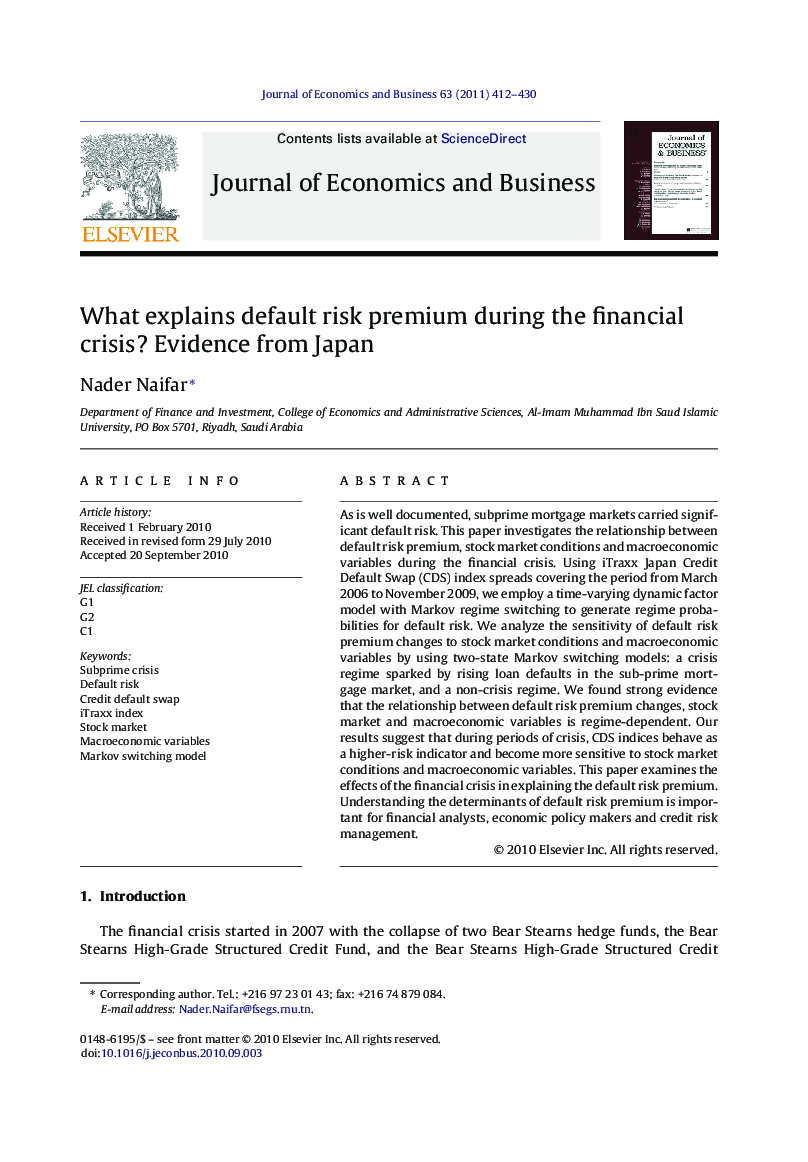| کد مقاله | کد نشریه | سال انتشار | مقاله انگلیسی | نسخه تمام متن |
|---|---|---|---|---|
| 958196 | 928896 | 2011 | 19 صفحه PDF | دانلود رایگان |

As is well documented, subprime mortgage markets carried significant default risk. This paper investigates the relationship between default risk premium, stock market conditions and macroeconomic variables during the financial crisis. Using iTraxx Japan Credit Default Swap (CDS) index spreads covering the period from March 2006 to November 2009, we employ a time-varying dynamic factor model with Markov regime switching to generate regime probabilities for default risk. We analyze the sensitivity of default risk premium changes to stock market conditions and macroeconomic variables by using two-state Markov switching models: a crisis regime sparked by rising loan defaults in the sub-prime mortgage market, and a non-crisis regime. We found strong evidence that the relationship between default risk premium changes, stock market and macroeconomic variables is regime-dependent. Our results suggest that during periods of crisis, CDS indices behave as a higher-risk indicator and become more sensitive to stock market conditions and macroeconomic variables. This paper examines the effects of the financial crisis in explaining the default risk premium. Understanding the determinants of default risk premium is important for financial analysts, economic policy makers and credit risk management.
Journal: Journal of Economics and Business - Volume 63, Issue 5, September–October 2011, Pages 412–430